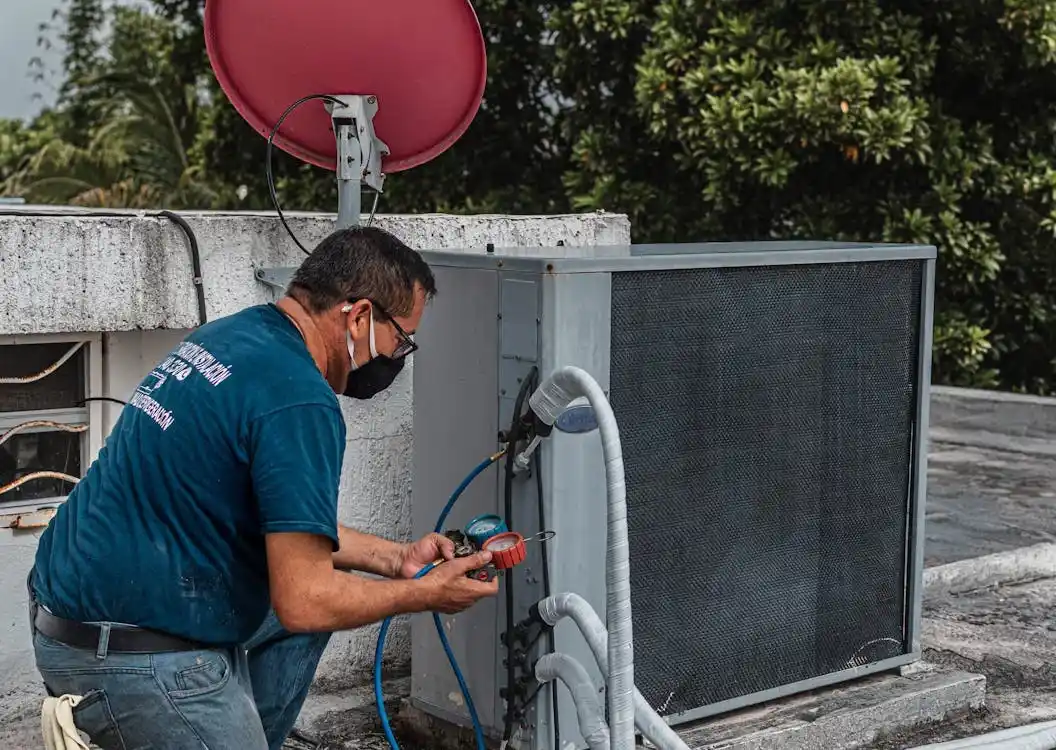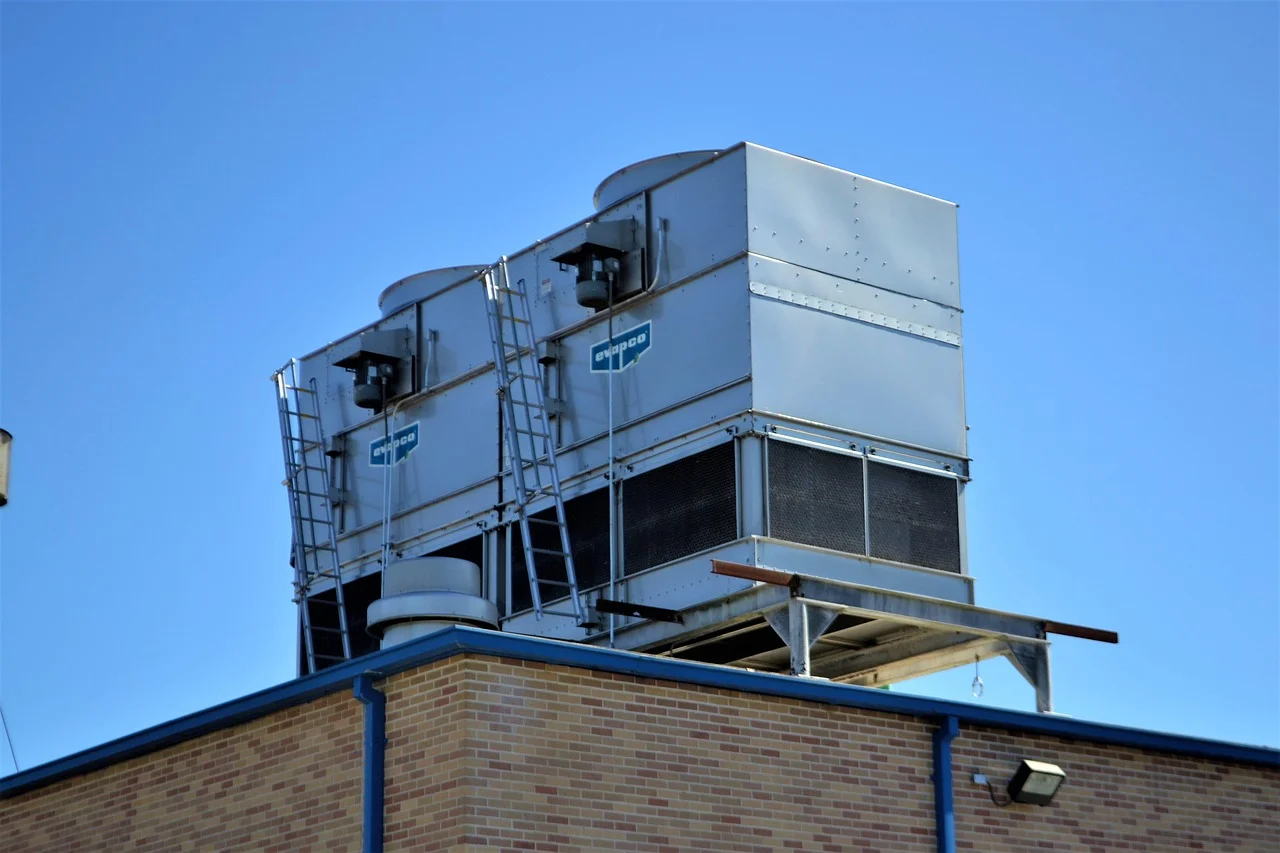Poor indoor air quality causes respiratory issues, allergies, and long-term health problems. Improving Indoor Air Quality with AC Maintenance represents one of the most effective approaches to securing clean, healthy indoor air. Your AC does more than cool your home—it filters pollutants, controls humidity, and circulates fresh air.
Without regular maintenance, your AC becomes a source of airborne contaminants, spreading dust, mold, and bacteria throughout your living space.

Replace AC Filters Every 30-90 Days
Air filtration systems work best with clean filters. Replacing the air filter at least once every two or three months keeps your system running efficiently. When filters become clogged, they reduce AC efficiency and allow contaminants to build up in your ductwork. Dirty filters force your AC to work harder, increasing energy consumption and breakdown risks.
Upgraded MERV 13 air filters work hand-in-hand with HVAC systems to improve indoor air quality, capturing 90% of particles sized 1-3 microns. The evaporator coil vs condenser coil comparison shows how these components work together—the evaporator coil absorbs heat from indoor air while the condenser coil releases heat outside.
Check your filters monthly. Pollutant removal becomes less effective when filters stay dirty longer than recommended replacement schedules.
Clean AC Coils and Ducts Annually
Dirty coils reduce cooling efficiency and become breeding grounds for allergens. HVAC system components need annual cleaning to maintain optimal performance and prevent harmful particles from entering your home. Clean coils at least once yearly.
Your ductwork also needs regular inspection and cleaning. Dust, mold spores, and debris accumulate inside ducts, causing poor air circulation and contaminant buildup. If you notice excessive dust on furniture, unusual odors, or increased allergy symptoms, your ducts may need professional cleaning.
Indoor air pollution spreads quickly through contaminated ductwork, making regular cleaning essential for healthy indoor environments.
Control Humidity Between 30-50%
Your AC maintains proper humidity levels when functioning efficiently. Moisture control prevents mold growth and improves overall air quality. If your home feels excessively humid even with the AC running, check the system’s drainage, refrigerant levels, or overall performance.
Use a hygrometer to monitor indoor humidity levels. Ideal indoor humidity stays between 30% and 50% for optimal comfort and air quality. If your AC struggles with humidity control, add a dehumidifier to complement its function. Proper atmospheric conditions not only improve air quality but also protect your home from mold growth and structural damage.
Add Air Purifiers and Advanced Filtration
Standalone air purifiers with HEPA filters capture microscopic particles like bacteria, mold spores, and volatile organic compounds (VOCs) that standard AC filters miss. Many modern AC systems work with advanced filtration technologies like UV light purifiers and electrostatic filters.
UV light systems installed within AC units kill airborne bacteria and mold before they circulate through your home. Electrostatic filters use electric charges to attract and trap fine particles, improving filtration efficiency. These air cleaning technologies provide added protection for families with allergies or asthma, especially in high-pollution areas.
Contaminant control becomes more effective when multiple filtration methods work together.
Ensure Proper Ventilation and Air Flow
Stagnant air allows pollutants to accumulate, creating poor indoor air quality. Adequate airflow throughout your home is essential for fresh, clean air. Keep vents and registers unblocked to allow free air circulation.
If your home has tight sealing for energy efficiency, consider using an air exchange system to introduce fresh outdoor air. Ceiling fans and exhaust fans in kitchens and bathrooms improve air movement and reduce pollutant buildup. Opening windows when weather permits increases ventilation by bringing fresh air and expelling indoor contaminants.
Air circulation patterns directly affect how quickly pollutants clear from indoor spaces.
Schedule Professional AC Service Twice Yearly
Most HVAC professionals recommend servicing air conditioners twice a year, ideally at the end of spring and fall, before the system faces heavy summer and winter workloads. While regular cleaning and filter replacements help, professional AC maintenance ensures your system operates at peak efficiency.
Certified HVAC technicians inspect and clean internal components, check refrigerant levels, and identify potential issues before they become costly repairs. Preventive maintenance helps prevent breakdowns, improves energy efficiency, and increases air quality.
During professional visits, technicians assess ductwork condition, ensure proper airflow, and recommend necessary improvements. HVAC maintenance protocols not only extend your AC system’s life but also contribute to cleaner, healthier living spaces.

Improving Indoor Air Quality with AC Maintenance represents one of the most effective ways to protect your health and create comfortable indoor environments. Well-maintained AC systems filter allergens, control humidity, and ensure proper air circulation. Neglecting routine maintenance leads to dust buildup, mold growth, and poor airflow, all contributing to respiratory problems and higher energy costs.
Simple steps like changing filters, cleaning coils, and scheduling professional tune-ups make significant differences in air quality and system efficiency. Taking care of your AC system means breathing cleaner, healthier air every day.
For more home improvement tips that boost comfort and health, visit HomeDecorToday, where we help you create the home environment you deserve.


